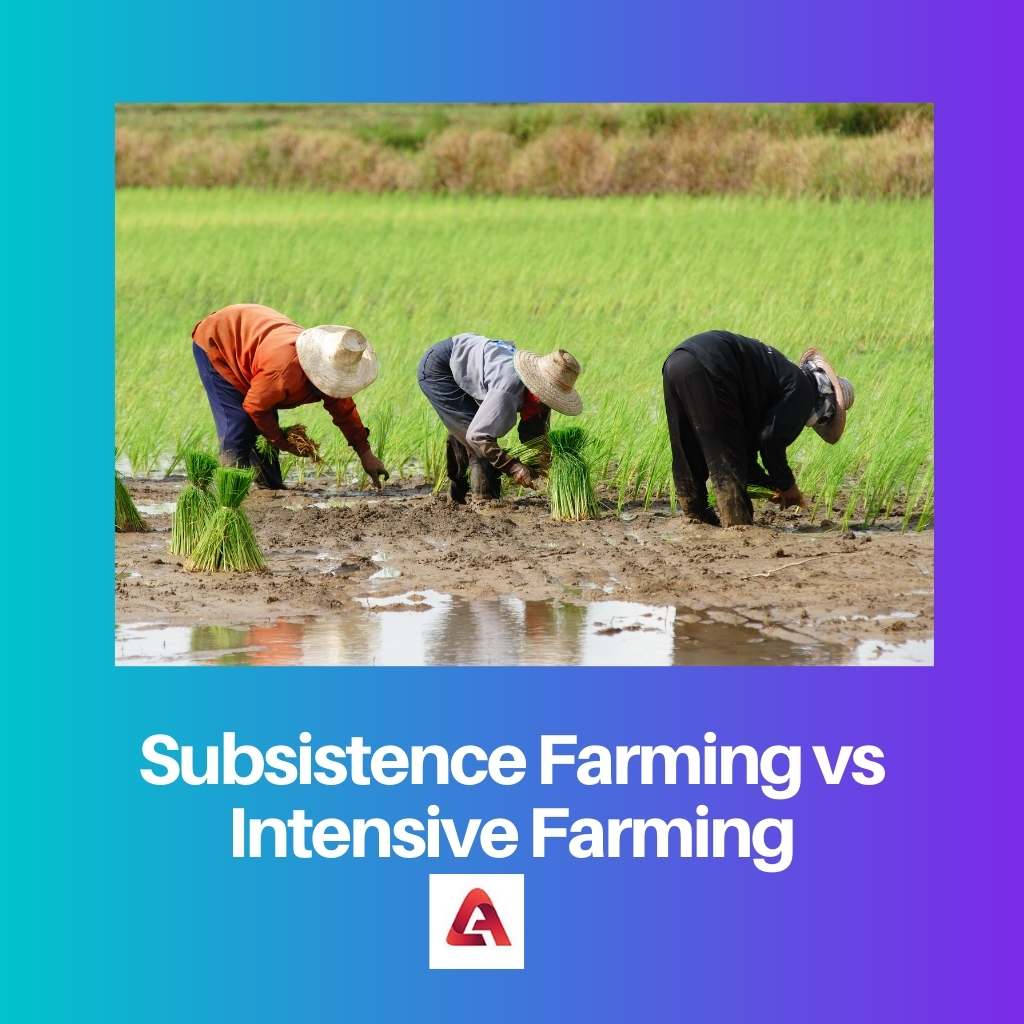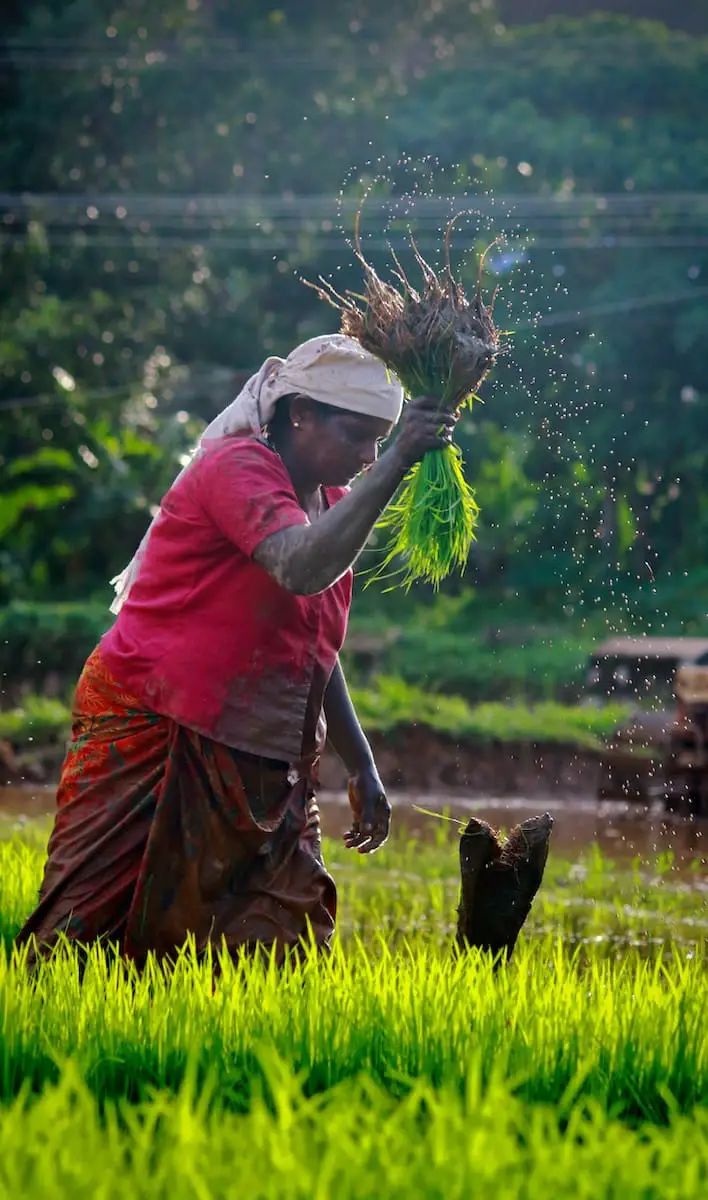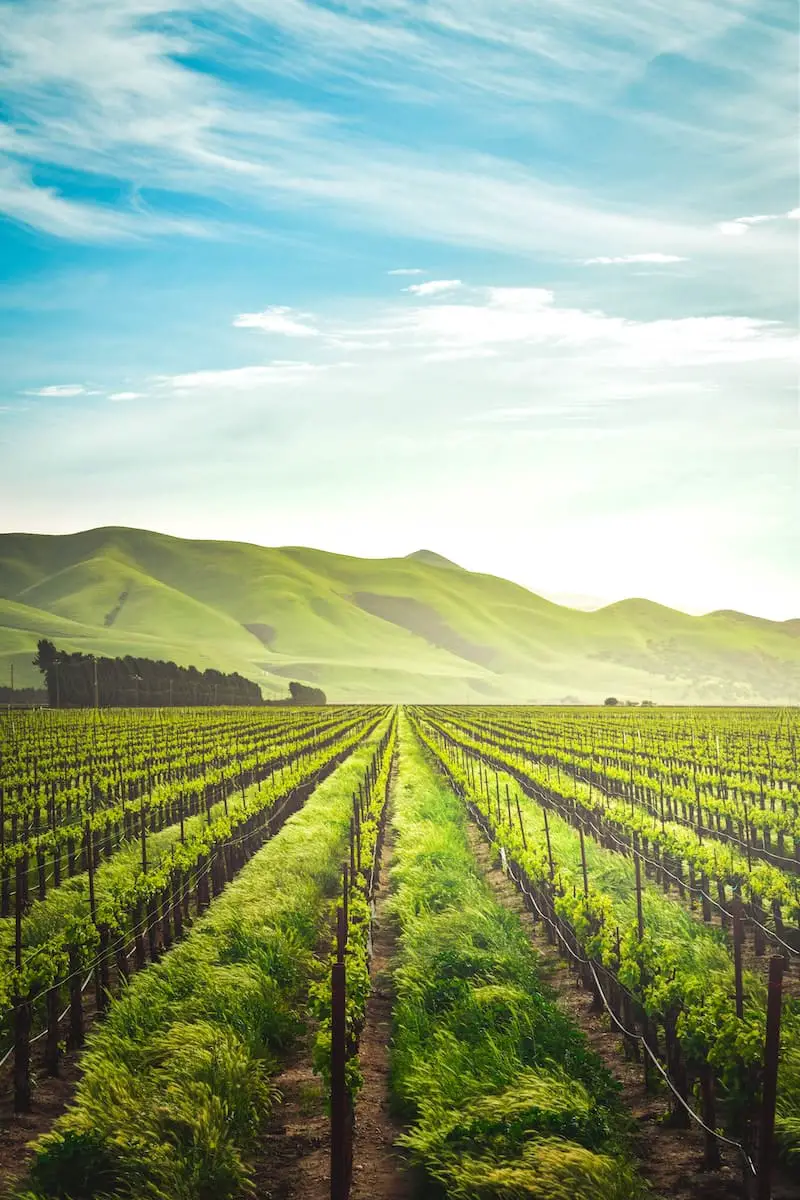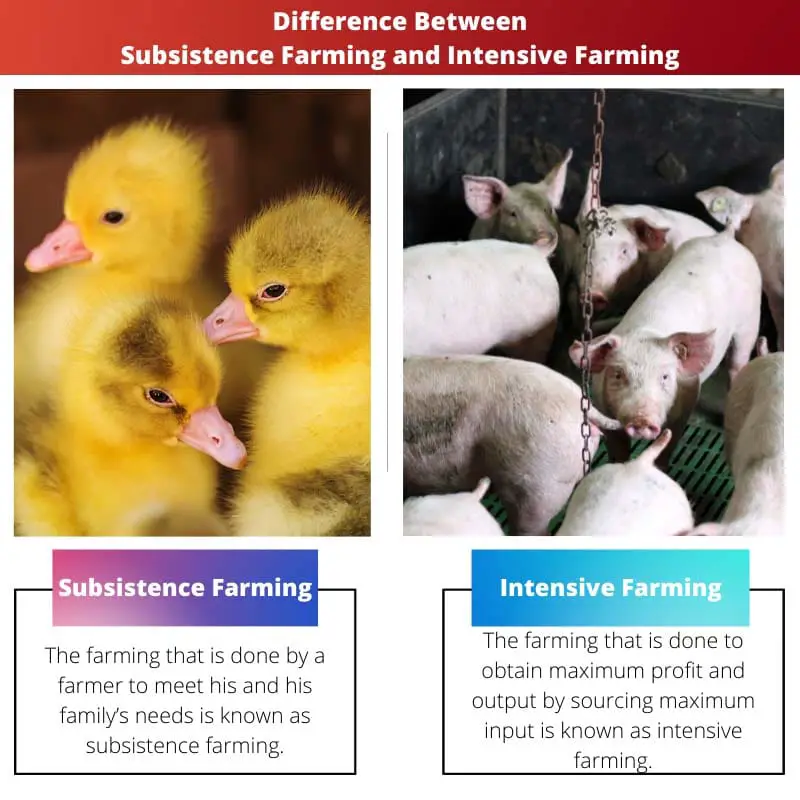The three basic needs of a human being are food, clothing and shelter. A human being needs these three things in their life to sustain. The suppliers of food and the backbone of any nation are farmers.
Agriculture is one of the most fundamental occupations in the world. It includes many other related branches, namely, horticulture, animal husbandry, etc.
However, the farming part of agriculture is extremely important. There are several steps involved in the entire process of farming. There are also several types of farming, namely 1. Subsistence Framing, and 2. Intensive Farming.
Key Takeaways
- Subsistence farming focuses on producing enough food to sustain the farmer’s family, while intensive farming aims for maximum yield to sell in the market.
- Intensive farming relies on modern technology, chemical fertilizers, and pesticides, whereas subsistence farming utilizes traditional methods and organic inputs.
- Subsistence farming has less environmental impact than intensive farming, which can lead to soil degradation, water pollution, and loss of biodiversity.
Subsistence Farming vs Intensive Farming
Subsistence farming is a type of farming where the farmer produces enough food to feed their family or community, with little or no surplus for trade. Intensive farming is a type of farming where the farmer uses modern methods and technologies to produce a large amount of food on a small plot.

Subsistence farming is a type of farming that is practised by a farmer to meet his needs. There are several types of subsistence farming as well.
When a farmer practices subsistence farming, he primarily thinks of what his family would need in the respective year, and then he thinks about the market prices and other things related to it.
Intensive farming is a type of farming that is practised by a farmer when he wants to obtain maximum profit and output. It is a type of agriculture practised with plants and animals.
In this type of farming, more inputs are used to obtain more output, and it is mostly practised in areas with dense populations.
Comparison Table
| Parameters of Comparison | Subsistence Farming | Intensive Farming |
|---|---|---|
| Meaning/ Definition | The farming that is done by a farmer to meet his and his family’s needs is known as subsistence farming. | The farming that is done to obtain maximum profit and output by sourcing maximum input is known as intensive farming. |
| Practised on | Smaller land holdings | Bigger land holdings |
| Productivity | Less | More |
| Tools | Primitive tools are used. | Modern tools are used. |
| Mode is irrigation | Natural resources like rain. | Modern irrigation methods are implemented like sprinkle irrigation and drip irrigation. |
What is Subsistence Farming?
Subsistence farming is a type of agriculture practice that is adopted by a particular group of farmers who practise farming to meet the needs of themselves and their families.
Farmers who practise subsistence farming eat and sell what they grow on their farms. They practice farming on smaller lands.
A very small amount or no chemical fertilizers are used in this method. Subsistence farming also includes the dependency of farmers on the monsoon season for the growth of crops.
No modern techniques are used for the irrigation of crops, and farmers completely depend on rainwater as it gives natural growth to crops.
Even the labour that acts as a helping hand in the entire process is mostly the family members of the farmers. No modern tools are used in subsistence farming. Only traditional tools like machetes and cutlasses are used.
Usually, subsistence farming is practised in scarcely populated areas where the resources are extremely limited and the need is high.
The amount of effort required for a successful yield is very high in subsistence farming. Farmers that practise subsistence farming grow crops and try to make their profit with limited resources by using traditional farming techniques.
Their main objective is to meet the needs of their family members and themselves.

What is Intensive Farming?
Intensive farming is a type of farming where a farmer does farming to obtain maximum profit by investing more in input. The main objective here is to gain the maximum outcome possible.
It is also known as intensive agriculture, and it is exactly the opposite of extensive agriculture or extensive farming.
Farmers make the best use of the modern tools and techniques available in farming to get better yields, and they also use chemical pesticides and fertilizers.
For irrigation of crops, they do not depend on monsoon rain; instead, they use modern irrigation methods like drip irrigation and sprinkle irrigation.
The agriculture practices done for commercial purposes are mostly intensive farming examples. Both animals and plants are a part of this farming method.
It is mostly practised in areas that are densely populated and areas that have abundant resources. The areas with more population result in more yield and profit for the farmers.
There are several advantages of intensive farming.
The yield is extremely high in intensive farming, which helps the farmers financially, the land where the farming practices are done is supervised keenly, and economic growth is possible due to intensive farming, even if the farming techniques include the use of chemical pesticides and fertilizers, the entire process is done on the basis of the guidelines put forth by the Environment Protection Agency, and therefore these products are healthy as well as affordable.

Main Differences Between Subsistence Farming and Intensive Farming
- The area where both the farming types are practised is different. For subsistence farming, smaller landholdings are used. On the other hand, for intensive farming, bigger landholdings are used.
- The fertilization of crops in subsistence farming is done by using traditional natural techniques. On the other hand, the fertilization of crops in intensive farming is done by using modern techniques.
- The use of chemical pesticides and fertilizers is not done in subsistence farming. On the other hand, chemical pesticides and fertilizers are used in intensive farming.
- The crops that are grown in each of the farming types are different. In subsistence farming, crops like fruits and vegetables and grains are grown. On the other hand, in intensive farming, crops like cash crops and other cereals are grown.
- The productivity or yield is less in subsistence farming. On the other hand, the yield is more in intensive farming.

- https://link.springer.com/article/10.1007/s11692-010-9089-0
- https://onlinelibrary.wiley.com/doi/abs/10.1111/j.1574-0862.2009.00411.x

The comparison table is particularly helpful in understanding the key differences between subsistence farming and intensive farming.
Intensive farming seems to be a more commercially driven farming approach as compared to subsistence farming.
The article rightly highlights the significant role of agriculture in meeting the basic needs of human beings.
This article explains the differences between subsistence farming and intensive farming in a comprehensive manner.
I agree! The article provides a clear and detailed insight into the two types of farming methods.
The contrasting objectives and techniques of subsistence farming and intensive farming are effectively presented in this article.
The detailed explanation of subsistence farming and intensive farming methods is very enlightening.
The article effectively conveys how subsistence farming is dependent on traditional methods and natural resources for crop production.
The discussion on the advantages of intensive farming underscores the economic growth potential associated with this method.